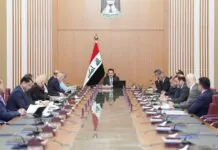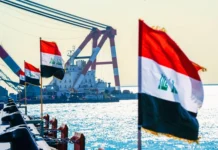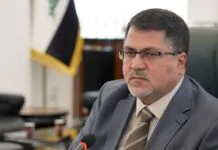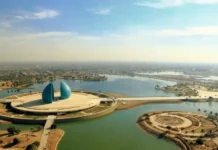Tishwash: Parliamentary Legal Committee: No serious steps have been taken to pass the Oil and Gas Law yet.
Parliamentary Legal Committee member Dara Sekanyani confirmed on Wednesday that no serious steps have been taken to pass the oil and gas law. He noted that passing the law requires consensus and understanding between the parties, something that has not yet been achieved.
“All parties are talking about the importance of approving and passing the oil and gas law, which was included in the government’s work program and was scheduled to be passed, but no serious steps have been taken to pass it yet,” Sekanyani said in a press statement. He explained that “passing the oil and gas law concerns all of Iraq and requires understanding between all parties. It requires some kind of agreement and consensus, but so far this consensus and understanding has not been achieved between the political parties in Iraq and the region.”
He added, “If the oil and gas law is passed, the oil and gas issue between the Kurdistan Regional Government and the federal government will be resolved, and some of the issues between them will be resolved, provided that all parties commit to implementing the law after its passage.” link
Tishwash: Al-Karawi: We filed a lawsuit against the government due to the delay in the budget schedules
Member of the Parliamentary Finance Committee, Mustafa Al-Karaawi, revealed today, Tuesday, that the committee has filed a lawsuit against the government due to its delay in sending the budget schedules.
Al-Karaawi said in a statement to / Al-Maalouma / agency, that “the suspension of new employment and appointments is based on Article (14) of the Budget Law, which stipulates the suspension of contracting and appointment, with the exception of 150 job grades regulated within the budget text, in addition to some excluded categories in institutions affiliated with the Ministry of Education.”
He explained that “these exceptions have already been implemented or government institutions have begun implementing them. As for new contracts or daily wages, there is no explicit text in the budget that allows them to proceed with them, which makes them a subject of continuous discussion in Parliament sessions, especially with regard to the confirmation of contracts.”
He added that “the first half of the year is about to end, and the budget has not yet been included on Parliament’s agenda,” stressing that “this matter constitutes a clear violation of the Budget Law, especially Article 77/Second Paragraph.”
He pointed out that he “filed a lawsuit with the Public Prosecution Office more than two weeks ago, due to the delay in sending the budget and the existence of financial violations related to the Kurdistan Regional Government’s allocations, as more than 4 trillion dinars spent were above the approved allocations.”
Al-Karawi confirmed that “the Public Prosecution Office has begun investigation procedures to find a solution to the crisis,” suggesting that the reason for the government’s delay in sending the budget is the lack of financial liquidity and the absence of real solutions to the financing and cash crises, in addition to ignoring fluctuations in oil prices.
It is noteworthy that the budget for the years (2023-2025) was legislated in a three-part formula for the first time in Iraq’s history, but the government has not sent its annual schedules yet, which has sparked angry parliamentary and popular reactions. link
****************
Tishwash: Mazhar Saleh: Stabilizing inflation is one of the most notable successes of Iraq’s economic policy.
6/11/2025
The Prime Minister’s economic advisor, Mazhar Mohammed Salih, confirmed that one of the most significant successes of Iraq’s economic policy this year has been the stability of the general price level, or inflation, growth rate. He noted that the annual inflation rate is approaching, for the first time in many years, the natural break in price growth, which amounts to about 3% or less, according to statistical inflation indicators.
Saleh explained in an interview with Al Furat News Agency that “this significant price stability is due to the combination of economic policy objectives to maintain the purchasing power of citizens’ cash income and overall macroeconomic indicators, which represents an addition to real income for citizens and a good indicator of the investment and business climate.”
He pointed out that “among the factors that contributed to achieving these successes is the general budget’s allocation of price support within fiscal policy, which constitutes more than 13% of GDP. This is a high and significant percentage, and goes towards subsidizing the prices of government services, in addition to fuel and food basket subsidies, farmer support, and other types of support.” LINK






